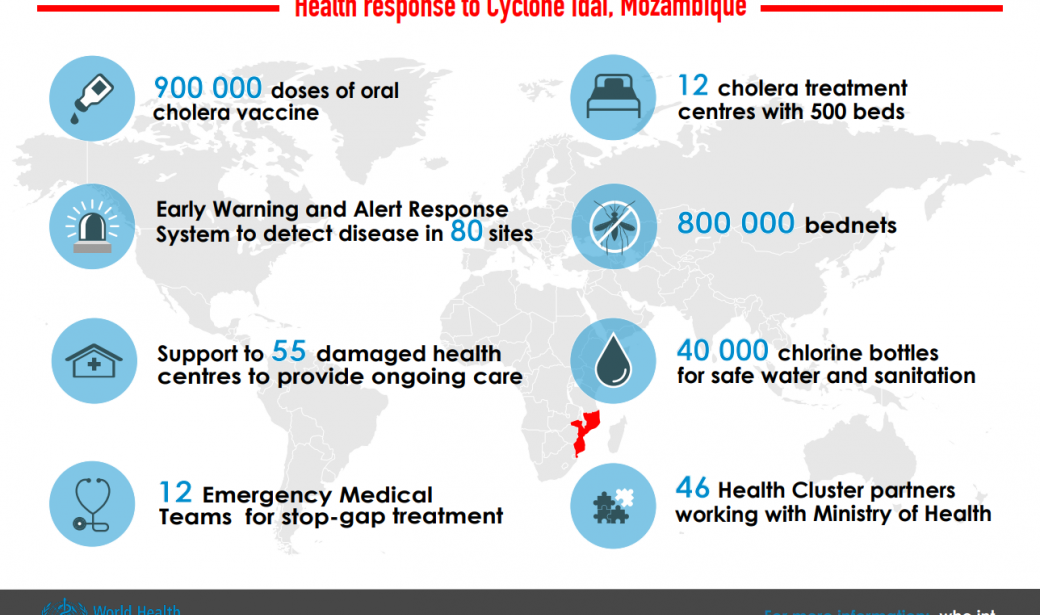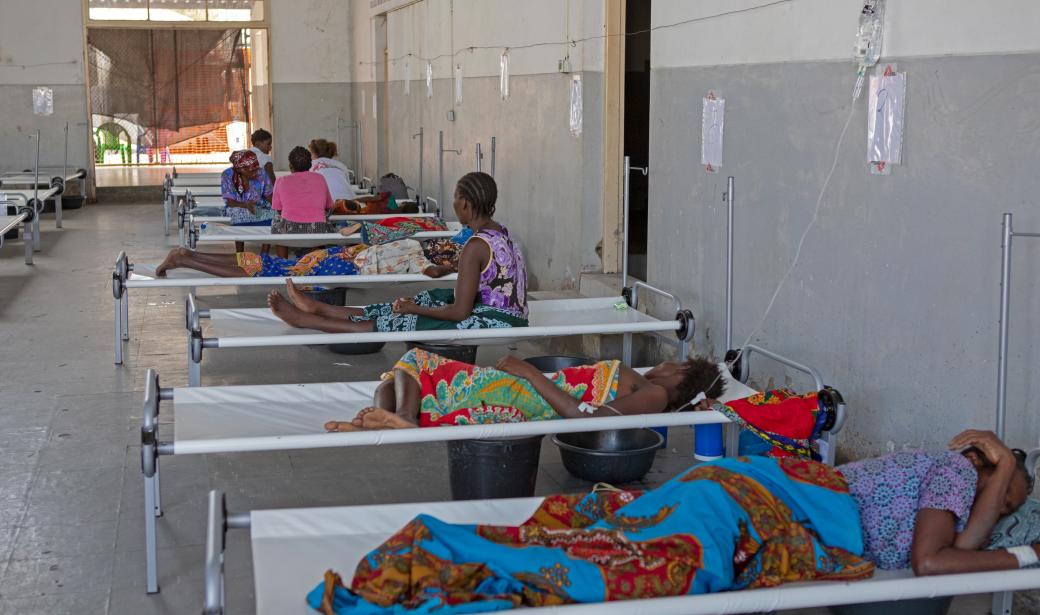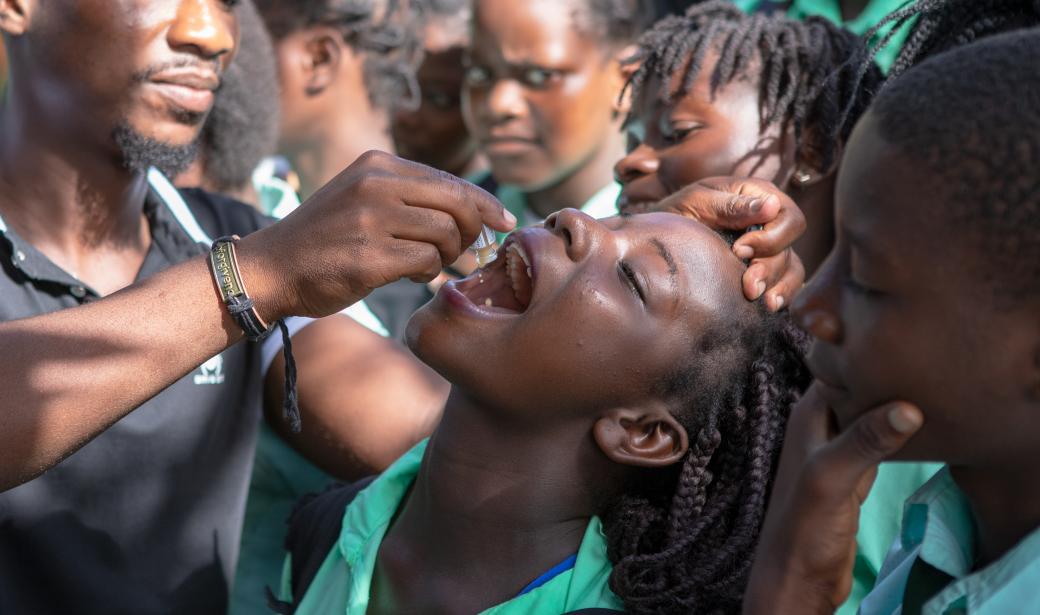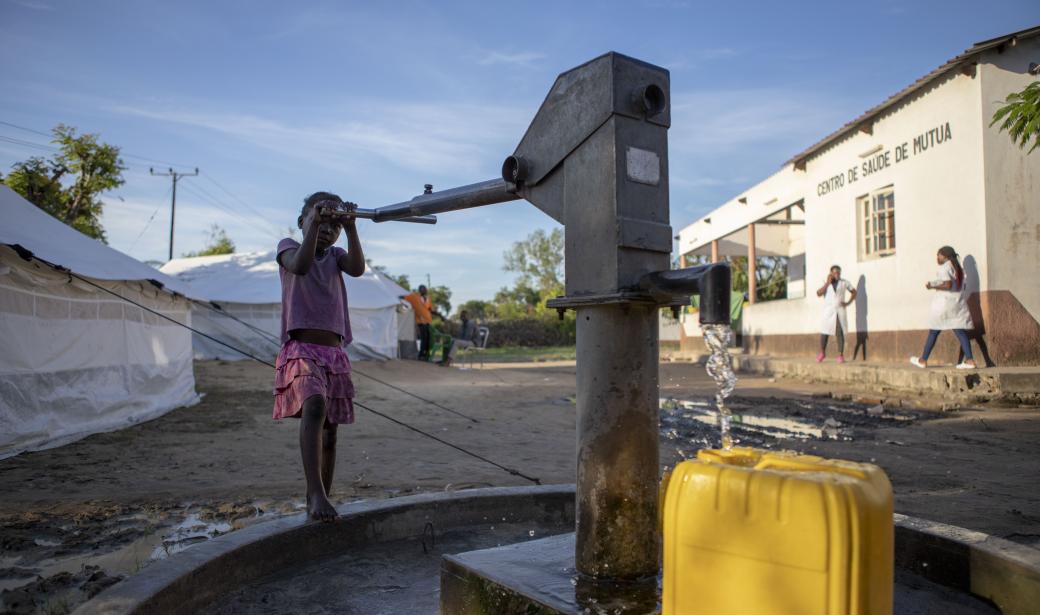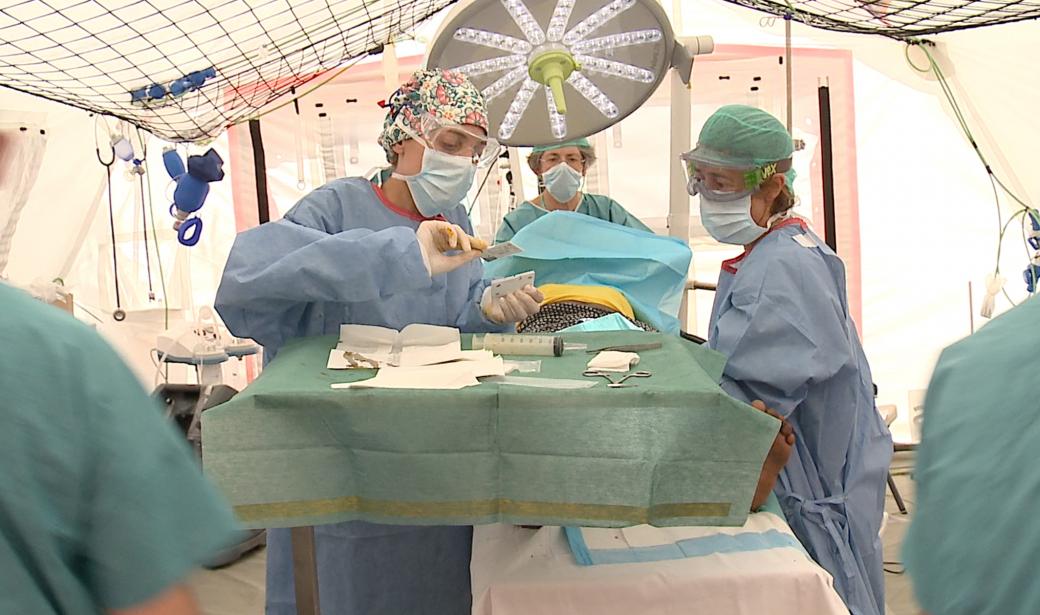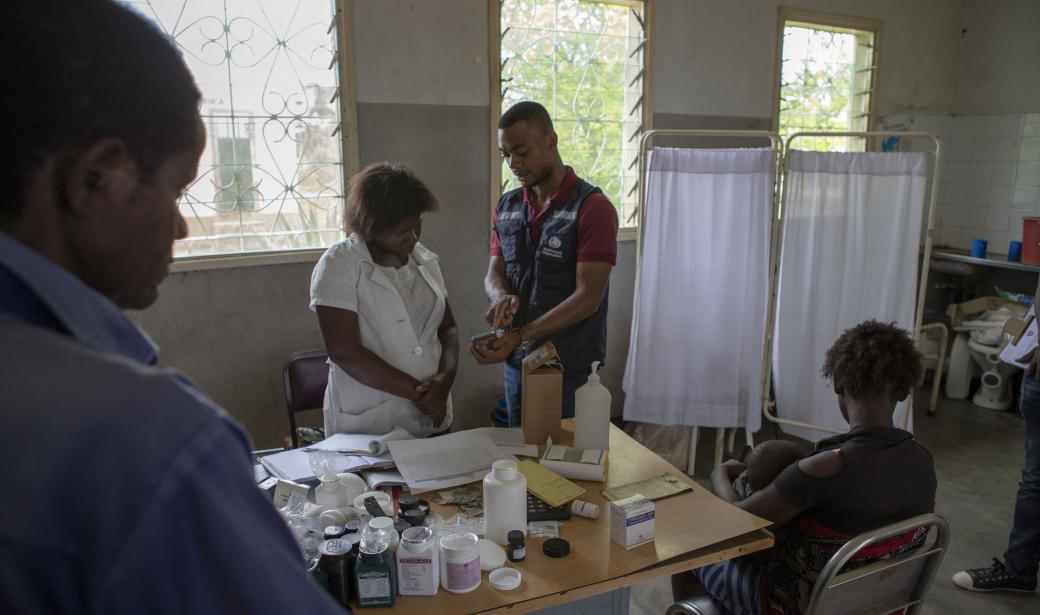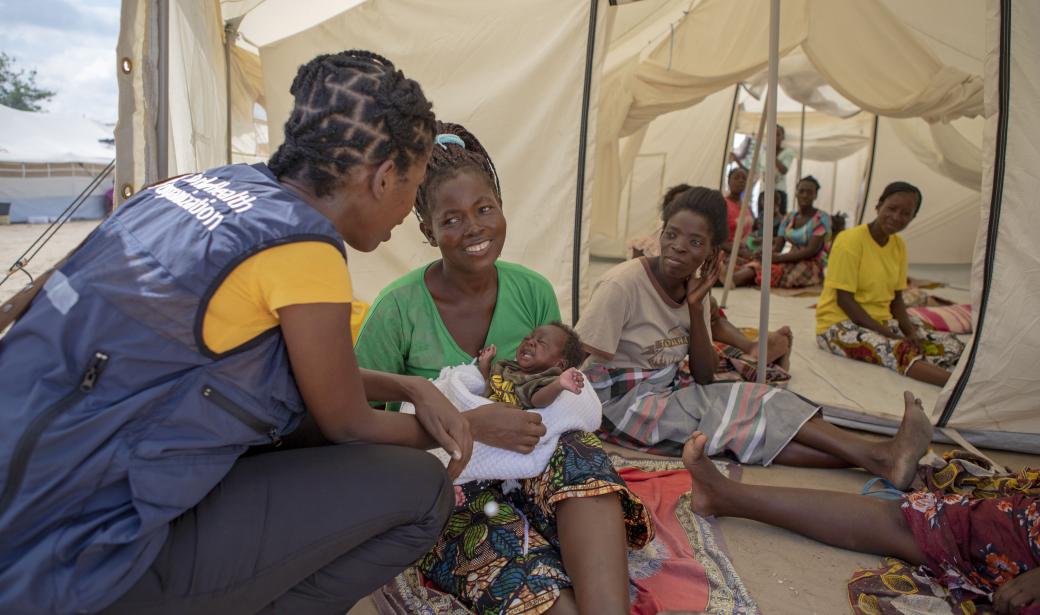In the first weeks of Cyclone Idai's aftermath, WHO and partners moved rapidly to support the Ministry of Heath to save lives and limit the suffering of more than 1.8 million people left without shelter, food, safe water and sanitation and health services.
State of emergency declared on 19 March
WHO deployed a team of 40 experts to Beira from across all three levels of the organization (country, regional and headquarters) and sent medical supplies and equipment to support health authorities and partners in providing life-saving services.
WHO is coordinating the Health Cluster, which has brought together 46 health partners since the beginning of this emergency response, in support of national capacity.
WHO is coordinating the Health Cluster, which has brought together 46 health partners since the beginning of this emergency response, in support of national capacity.
Controlling the cholera outbreak
WHO/Mark Nieuwenhof
WHO and partners have supported the Ministry of Health to establish and operate 12 cholera treatment centres, with more than 500 total bed capacity available, and multiple sites for oral rehydration in communities. Thanks to effective and timely case management at least 4610 people have recovered from cholera and have been discharged from health centres.
Water, sanitation and hygiene
WHO/Mark Nieuwenhof
Health partners are supporting Ministry of Health to provide safe water and sanitation to health facilities, including potable water for human consumption as well as cleaning and disinfection of water tanks. Water quality monitoring continues with the results showing that the water remains within the WHO parameters.
In accommodation centres, 109,000 liters of water have been provided. 472 leaks from the water network have been repaired so far since the cyclone hit.
In accommodation centres, 109,000 liters of water have been provided. 472 leaks from the water network have been repaired so far since the cyclone hit.
Stop-gap treatment
WHO/Mark Nieuwenhof
Thousands of patient consultations have been conducted, including emergency surgery such as caesareans and trauma surgery, through 15 Emergency Medical Teams from countries including Italy, Japan, Spain and Portugal and partners including Samaritan's Purse, International Federation of the Red Cross and Médecins Sans Frontières.
These field hospitals provide short-term clinical care as surge capacity to support the local health system in five of the worst-affected districts. Eight remain on the ground.
These field hospitals provide short-term clinical care as surge capacity to support the local health system in five of the worst-affected districts. Eight remain on the ground.
Malaria
WHO/Dalia
Health partners are supporting the Ministry of Health to deliver bednets for 600 000 people at risk of malaria. 116 586 nets have been distributed so far.
Malaria continues to be of great concern, with the four areas most affected by the cyclone at risk for an increase in case. Nhamatanda is the district with the largest number of malaria cases, with over 5000 recorded.
Health partners are supporting the Ministry of Health to deliver over bednets for 600 000 people in need.116 586 nets have been distributed so far.
Malaria continues to be of great concern, with the four areas most affected by the cyclone at risk for an increase in case. Nhamatanda is the district with the largest number of malaria cases, with over 5000 recorded.
Health partners are supporting the Ministry of Health to deliver over bednets for 600 000 people in need.116 586 nets have been distributed so far.
Boosting surveillance
WHO/Mark Nieuwenhof
A rapid emergency health surveillance system (called EWARS in a box) has reached all high-risk sites and roll-out continues for a planned 80 sites. 34 local staff have been trained to use this system that alerts for cases of cholera, acute watery diarrhoea, measles, malaria and other diseases with outbreak potential.
Maternal and child health
WHO/Mark Nieuwenhof
Baby Maravilha (Portuguese for "marvel" because of the time that she was born - one month ago at the start of the cyclone) and her mother are receiving care at Samora Machel accommodation centre in Dondo.
Thousands of women are pregnant and will need access to health services when they give birth. Thousands more children are at risk for malnutrition and disease.
WHO and partners are supporting local health services for ongoing needs, including pregnancy care, malnutrition screening, and plans for child health interventions including deworming, vitamin A supplements and measles vaccination.
Thousands of women are pregnant and will need access to health services when they give birth. Thousands more children are at risk for malnutrition and disease.
WHO and partners are supporting local health services for ongoing needs, including pregnancy care, malnutrition screening, and plans for child health interventions including deworming, vitamin A supplements and measles vaccination.
Pour plus d'informations ou pour demander des interviews, veuillez contacter :
MOREIRA Maria Da Gloria
Health Promotion Officer
Tel: +258 21492733
Email: moreirag [at] who.int (moreirag[at]who[dot]int)
Sarah Cumberland
Communications Officer for the Mozambique Response
WhatsApp: +41 79 206 1403
Email: cumberlands [at] who.int (cumberlands[at]who[dot]int)



